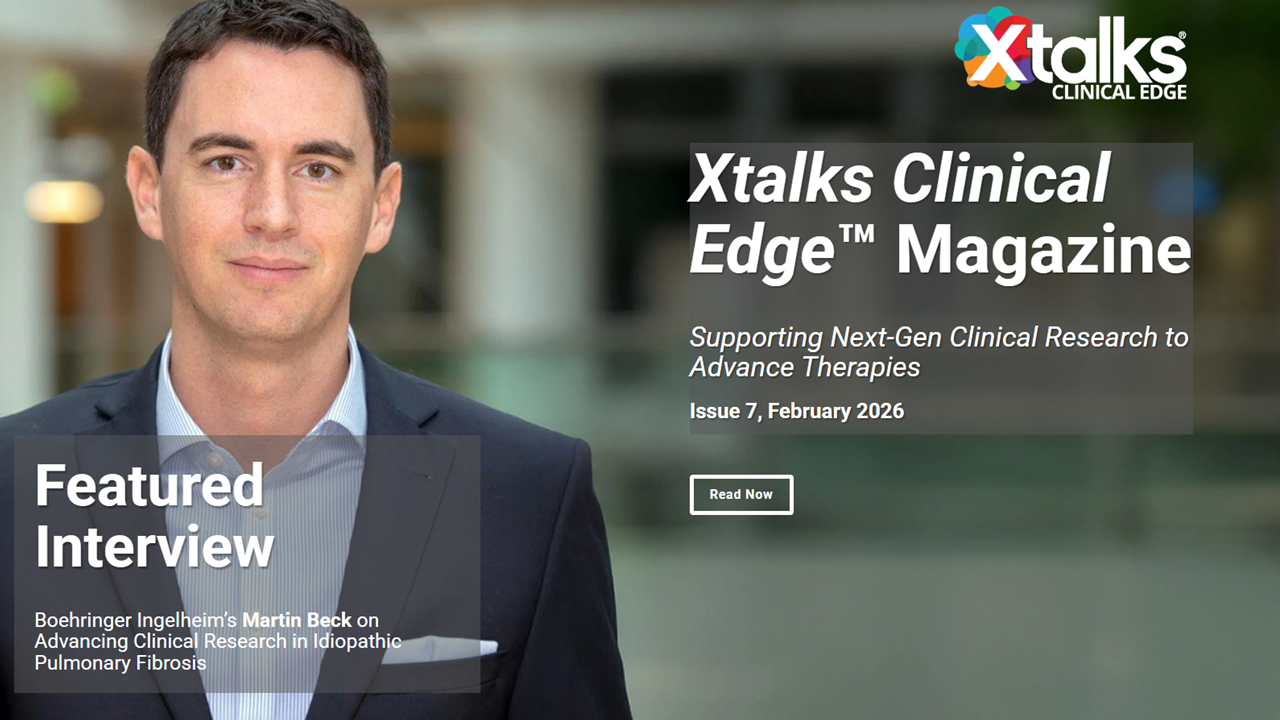On July 8, 2025, the ‘Grow London Global Life Sciences Mission: London Comes to Toronto’ networking reception was held in downtown Toronto, featuring a diverse, energetic crowd of life sciences innovators, investors, policymakers and digital health professionals.
Organized by London & Partners, the official economic development agency for the UK capital, the event was a key stop in a weeklong tour in Canada through Toronto and Montreal, designed to connect eight London-based life sciences and health tech companies: Ampersand, DLOC Biosystems, Feedback Medical, iOWNA, Panakeia, Thymia, Tendable & Ufonia, with Canada’s health innovation ecosystem.
Members of the Xtalks team were excited to attend the reception and witness the collaborative spirit and engagement between stakeholders in the UK and Canada’s health tech sectors.
The event aimed to forge new transatlantic connections and explore how the UK and Canada can support one another in scaling up solutions to today’s most pressing healthcare challenges.
A Global Mission to Connect, Collaborate and Scale
Chloë Griffin, London & Partners’ regional head for Eastern Canada, at London & Partners, explained that the Grow London Global initiative is designed to support UK scaleups take their innovations internationally.
The delegation brought over by Chloe’s London-based colleague Rik Patel, Senior Trade Manager – Life Science, London & Partners, for this visit represented the group’s trade accelerator program, helping London-based life sciences companies connect with key players in the Canadian ecosystem, including hospitals, academic institutions, investors and public sector leaders.
The visiting UK companies, working in areas like AI-driven drug discovery and validation, digital therapeutics, diagnostics and health IT, were seeking not only commercial partners and investors, but also insights into Canada’s regulatory environment, research infrastructure and market access pathways.
Hema Patel, Senior Investment Officer at the Department of Business and Trade at the British Consulate General in Toronto, told Xtalks that UK companies see strong similarities between the Canadian and UK economies and healthcare systems, which has fostered significant collaboration between the two countries.
“We are looking at something called BioBridge, which is to make the pathway between the UK and Canada a lot more accessible, and to build a strong relationship between our two nations,” she said. BioBridge aims to align health technology assessments, simplify regulatory understanding and facilitate real-time matchmaking between buyers and sellers across borders.
Why Ontario — and Why Now
Over the past several years, Ontario has positioned itself as Canada’s life sciences engine and an emerging global biohub.
With federal and provincial investment fueling R&D, manufacturing and commercialization — alongside coordinated public-private efforts and a growing talent pool — Ontario is well on its way to becoming a leader in North America’s biotech and life sciences landscape.
Since 2020, Canada has invested more than $2.3 billion into vaccines, therapeutics and biomanufacturing infrastructure.
In March, Canadian CDMO OmniaBio launched a new state-of-the-art cell and gene therapy manufacturing plant in Hamilton, Ontario.
At the event, Xtalks connected with Garrett Tone, Executive Director, Life Sciences, at Invest Ontario, who discussed the province’s growing status as a health innovation hub.
“The stage was set many years ago when this government created Invest Ontario, to ensure that Ontario could showcase itself in a way that previously wasn’t thought possible,” he said. “We now have the financial and practical tools to support investments of all shapes and sizes.”
Referencing the recent high-profile investment by AstraZeneca in Ontario, Tone shared how major pharmaceutical and biotech companies are increasingly looking to the province not only for its financial incentives but also for its commitment to sustainability, diversity and a strong talent pipeline.
“What global stakeholders want to know is: Can I see myself and my company thriving here? And with Ontario, the answer more and more often is yes. When you see people take a deep breath and say, ‘Wow, I didn’t know that,’ that’s the aha moment, where you can engage with different stakeholders, corporate officers and C-suite executives at these companies to showcase the province. It means a lot to me to be able to be that person on the front lines. And I don’t do it alone. It’s the efforts of our government as a whole.”
The AstraZeneca investment was seen not just as a milestone, but as a blueprint for how public-private partnerships and strong government engagement can bring transformative projects to Ontario.
Toronto, Ontario, is home to top institutions like the MaRS Discovery District, the Ontario Institute for Cancer Research (OICR), Ontario Genomics, the Centre for Applied Genomics and the Centre for Biodiversity Genomics, forming a strong innovation ecosystem supported by over 70,000 STEM graduates entering the talent pipeline each year.
Building a Stronger Canadian Health and Life Sciences Ecosystem
Many attendees spoke about the challenges and opportunities within Canada’s health innovation ecosystem.
Timothy Sung, Healthcare VC at Esplanade Ventures, explained, “It’s been a more challenging environment for Canadian healthcare startups lately — especially for pre-regulatory medtech companies looking to go to the US. There’s a lot of uncertainty around timelines, both from shifts in the FDA, especially on the AI side.”
There were also calls for more support at the provincial and federal levels, not just in funding, but in navigating regulatory approvals and creating collaborative environments where clinical, technical and commercial stakeholders can work together from the start.
“Hopefully, governments are open to providing more resources to get companies through approvals here, or support them in going through approvals in other jurisdictions like the UK,” said Sung.
Bibaswan Ghoshal, Senior Director, Technology Adoption at Obio, explained how Canada is an attractive place for health tech because of innovation, a growing ecosystem and talent. “We are also well-positioned as a good launching pad for companies to go to the North American market, which includes the US and Mexico,” he explained.
He emphasized the importance of uniting ecosystem partners nationwide to bridge gaps and create pathways that help companies connect with healthcare organizations, industry players and other stakeholders.
Canada’s Tech and AI Advantage
With the advent of new technologies, particularly AI-powered tech, there is growing global demand for digital tools that are user-friendly, regulatory-ready and aligned with real-world clinical needs. And Canada could be a gateway for exporting such solutions worldwide.
Parth Khanna, CEO of ACTO, a Canadian company specializing in post-market commercialization for biotech companies, shared key insights on the current scientific and geopolitical landscapes: “This is a global moment. Yes, there’s macro uncertainty — but that means there’s also macro opportunity.”
“We can lean in to understand the customers and use cases to build fantastic AI application products where we don’t have to go down this race to the bottom of just building data centres and frontier models. There are other countries that are frankly better positioned to do that. Where Canada can shine is in the application layer of AI, and that’s the exciting part,” he said.
Many in the field are also drawn by the opportunity to build in Canada as an alternative North American market, or while selling into the US market. A world-class research community, clinicians and a thriving IT sector have created a powerful foundation for innovation in Canada.
“The US is our largest trading partner and vice versa, but the recent trade discussions have prompted a lot of companies in Canada to look at working more closely with Europe, with interest both ways in doing business,” Jeff Chorlton, President & CEO of Flexserv, told Xtalks. Flexserv works to pave the way for organizations from abroad to establish operations in Canada.
Canada is well-positioned for growth, with a strong university system producing some of the world’s most technically skilled graduates. He noted how while top grads once flocked to the US, fewer are leaving now — a shift that makes it easier to hire top talent and build strong tech teams at home.
“With the incredible density of engineering talent, especially coming out of universities like Waterloo, and the diversity of our immigrant workforce, the opportunity for Canada is to lead in building AI-driven digital health products that make it into clinical workflows.”
UK–Canada: Strategic Partnerships in Innovation
For the UK delegation, Canada represents not only a market but also a like-minded partner.
Sara Nelson, Programme Director at Digital Health London, joining the delegation as a guest, told Xtalks that the need for innovation has pushed them to be more intentional, focusing on solutions that address real problems, rather than just using “shiny tools.”
“It’s crucial that these solutions are validated and fit for purpose. As clinicians and system leaders, we must know what to look for, where to find it and go to platforms like accelerators that have already done some due diligence to identify promising, impactful innovations and products to bring to the system,” she explained.
Over the past five years, particularly since the COVID-19 pandemic, approaches to innovation have evolved. The pandemic underscored the need to integrate digital tools more thoughtfully and strategically.
Rik Patel also highlighted the importance of establishing strong links between international innovation and healthcare ecosystems.
“London ranks as one of the top cities for Life Science innovation globally, and in parallel, North America plays a critical role on the global stage for validation and success of technological innovation across a wide population base and at scale. With similarities between the Canadian and UK healthcare systems, this helps Life Science companies in both directions of their approach to market access, and in addressing critical challenges to optimize care pathways.
Tendable, for example, a mobile-first quality improvement platform whose technology is tried and tested across the NHS, helps to automate clinical admin, in turn giving more time back to healthcare professionals. They are already engaged with seven health and care providers in Canada and are on a mission to be engaged with over 10 times more by the end of the year.”
From Networking to Building
Later this year, MedCity, the dedicated team of Life Science experts at London & Partners, is preparing for London Life Sciences Week 2025, which takes place 16-21 November 2025 in London, UK. It is focused on bringing together the global Life Science community of investors, academic and corporate collaborators, clinicians and many more to engage in networking and dealmaking to help foster innovation via collaboration in the sector.
Today, however, the Grow London Global networking reception is part of this growing movement toward deep, reciprocal partnerships in global health innovation. It was also a timely reminder that the future of healthcare will be written not only in labs and boardrooms, but in cross-sector, cross-border conversations like these. “I think there is a real want to change. There’s a need to change, and so, therefore, let’s do it together,” said Nelson.
We at Xtalks look forward to continuing to cover these developments and share the stories of the people, companies and partnerships shaping the future of health.
Xtalks is proud to support pharmaceutical, biotech and medtech companies in making strategic decisions. In today’s economic climate, our audience is increasingly seeking guidance on where to establish operations and conduct research. To meet this need, Xtalks is launching Pharmaville — a smart locator designed to help life science companies make informed investment decisions about R&D, manufacturing and clinical trial locations.












Join or login to leave a comment
JOIN LOGIN